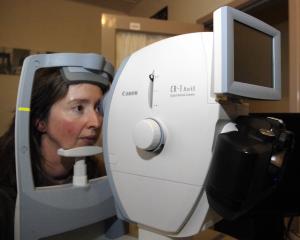
Jeffrey Wigand, the former head of research at tobacco company Brown & Williamson, a subsidiary of BAT, and portrayed by Russell Crowe in the movie The Insider, spoke to the Maori Affairs select committee inquiry into tobacco today.
The committee is investigating ways to make New Zealand smokefree by 2020.
British American Tobacco NZ, the major tobacco company in this country, told the committee earlier this year it did not know how much it spent on marketing and denied a strategy of targeting Maori and Maori youth.
But Dr Wigand said he did not believe that was an honest account.
Tobacco companies added hundreds of additives to cigarettes, and not just sugar as the industry maintained, and the assertion there were no marketing plans was "absolute nonsense", he said.
Tobacco representative should return to the select committee and testify under oath that they only add sugar and don't have marketing strategies, he said.
"See if you get the same story.''
Dr Wigand, an expert in additives to make cigarettes more potent and taste better, addiction process and cigarette design, said his moral compass was challenged while working for the industry for four years and three months.
Cigarettes were an "elegant form of a drug delivery device'' which only had one purpose; to addict someone and introduce them to between 4000 and 8000 poisons that could not legally be buried, he said.
The industry exercised a "deliberate and conscious daily distortion of the truth", where information that could save lives was controlled.
It deliberately targeted groups such as ethnic groups, women and children, he said.
"I know the Maori population suffers more than any other population, with about a 50 percent smoking rate and the associated morbidity and mortality.''
In the US and Canada, native Americans, African Americans and Hispanics and the concept of thinness for women were targeted with different packaging and branding - such as Uptowns, Cool, Capri and Virginia Super Slims, he said.
They were peddling the concept of thinness to target women.
"Hook 'em young, hook 'em for life'' was the industry's mantra, he said, citing Project 16, a BAT initiative looking at how to get children smoking, focusing on those aged 16 and below - making them feel older, sexier and thinner through smoking.
He advocated regulation for the full disclosure of the addictive chemicals and additives added to tobacco.
Nationalising the tobacco industry was not out of the question.
New Zealand, like Bhutan had done, could control the supply of tobacco through its borders. Most tobacco came here from Australia.
He admitted people could smoke homegrown tobacco - but it was the additives that made it palatable. Smoking raw tobacco was an unpleasant "retching'' experience, Dr Wigand said.
He did not believed banning tobacco altogether was realistic but controlling what came into the country was more practical.
"If you truly want to have New Zealand, by 2020, tobacco free, you have to make this a hostile environment for the tobacco industry and you do that by regulating.''
Allowing the industry to regulate itself was "like giving the fox the ability to build the chicken coop", he said.
"They will not voluntarily do anything, anything, whether it is morally right, saves lives at the expense of profit. If you really want to have a tobacco-free society, then you are going to have to do some things that are pretty harsh.
"When used as intended, it kills.''
He said the committee's initiative was very important.
"Your initiatives will save lives, more so your initiative, your actions, they will save lives. If you can reduce in the Maori population, pregnant women that smoke, you will be saving an enormous future.''











